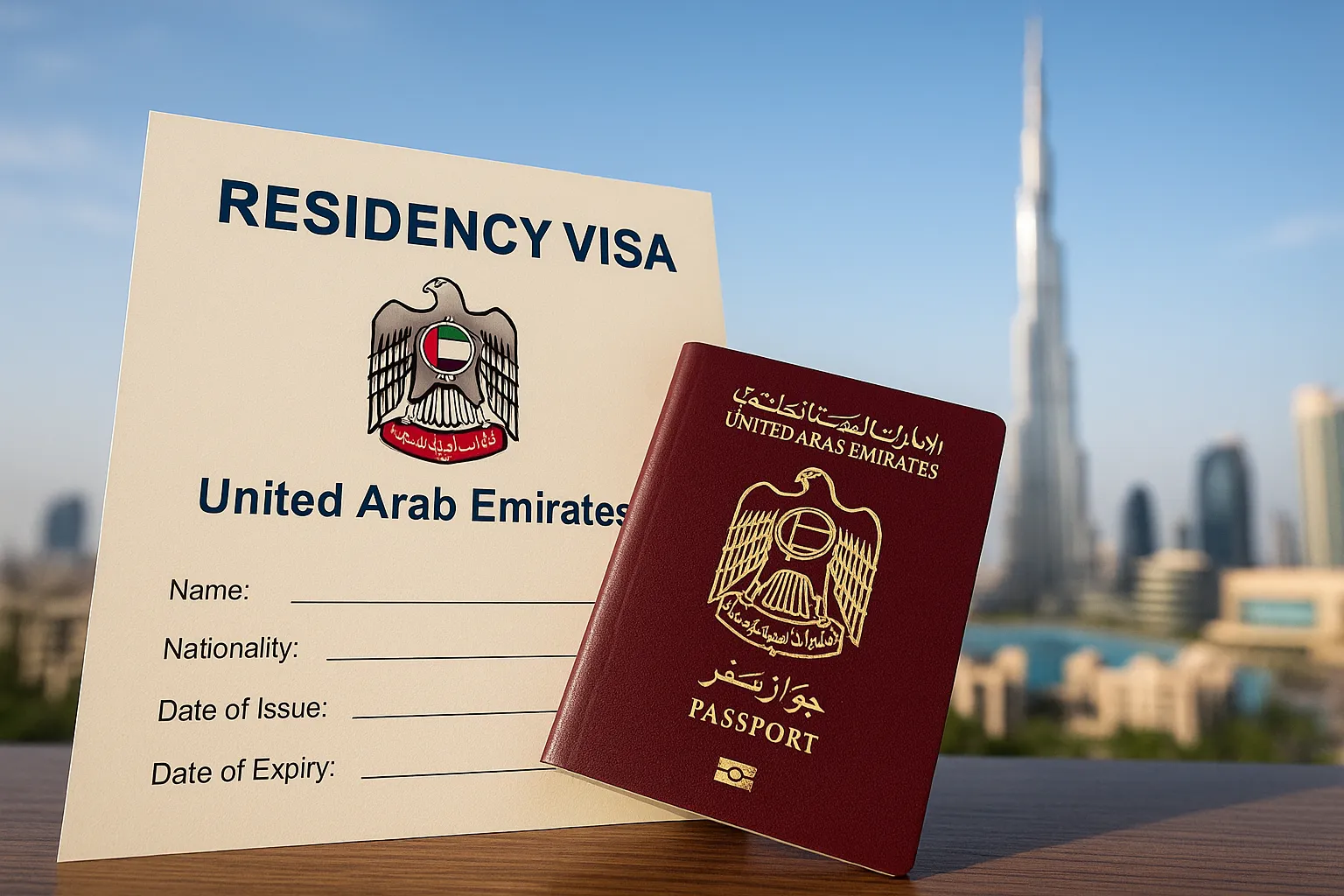Securing a residency visa UAE opens doors to living, working, and investing in one of the most dynamic regions of the world. From bustling Dubai to Abu Dhabi’s cultural heritage, expatriates and investors alike seek the stability and opportunities a UAE residence permit provides. Over the years, I’ve guided colleagues and clients through the nuances of various visa pathways, demystifying requirements and sharing practical tips to navigate each step. In this article, I’ll walk you through eligibility criteria, documentation, application procedures, and insider insights to help you successfully obtain your UAE residency visa.
Understanding Residency Visa UAE Categories
The UAE offers multiple residency visa types tailored to distinct profiles: employees sponsored by employers, investors and entrepreneurs, property owners, and specialized talents. Each category comes with its own set of criteria, benefits, and validity periods.
Employee-Sponsored Visas
If you secure a job in the UAE, your employer typically sponsors your residency visa. This route is the most common for professionals and requires a valid labor contract. Employers handle the bulk of the paperwork, but understanding the process helps you prepare necessary documents promptly.
Investor and Business Visas
Entrepreneurs and investors can apply for a residency visa by establishing a company in a UAE free zone or on the mainland. For a comprehensive overview of investor visa options, including the Golden Visa and long-term residence schemes, visit residency visa uae which outlines pathways and investment thresholds in detail.
Property Owner Visas
Purchasing real estate above a specified value—usually AED 750,000—qualifies you for a residency visa tied to your property. This option appeals to those seeking to live in the UAE without business or employment sponsorship, though the property must remain mortgage-free for certain visa durations.
Specialized Talent and Golden Visas
The UAE’s Golden Visa program grants 5- or 10-year residency to exceptional talents, researchers, specialized doctors, and investors meeting high investment criteria. This long-term visa minimizes renewal hassles and opens repeated entry without requiring a local sponsor.
Eligibility Criteria and Quotas
Each residency category has distinct eligibility requirements. Employee visas hinge on your job offer and employer’s quota, while investor visas depend on registered capital or property value. Golden Visas require professional credentials, patents, or significant business assets.
Work Permits and Quotas
Companies in the UAE must secure work permit quotas from the Ministry of Human Resources and Emiratisation (MOHRE) before sponsoring employees. Understanding your employer’s quota status accelerates the visa timeline and prevents unexpected delays.
Investment Thresholds
For entrepreneurs, registering a company in a free zone often mandates minimum capital deposits—ranging from AED 50,000 to AED 1 million depending on jurisdiction. Mainland business licenses may require local sponsorship or service agent arrangements. Property-owner visas demand proof of ownership and property valuation certificates.
Documentation Standards
Across categories, standardized documents include:
Valid passport copies with at least six months’ validity
Passport-size photographs meeting UAE government specifications
Medical fitness certificates from approved UAE health centers
Verified academic or professional credentials (for specialized visas)
Title deeds or trade licenses, depending on sponsorship type
Ensuring each document aligns with UAE formatting and attestation rules is crucial to avoid application rejections.
Step-by-Step Application Process
Securing a UAE residency visa involves several regulated phases, typically coordinated through a PRO (Public Relations Officer) service under your employer or visa consultant.
Initial Entry Permit
Your sponsor applies for an electronic entry permit (“pink visa”) via the Federal Authority for Identity, Citizenship, Customs and Port Security (ICP). This permit allows you to enter the UAE legally with the intent to change your status to a resident.
Medical Fitness Test
Within 30 days of arrival, applicants undergo a medical fitness test at authorized health centers. The evaluation screens for infectious diseases like tuberculosis and hepatitis B. Results are uploaded electronically, and a fitness certificate is issued.
Emirates ID Registration
Simultaneously, you register for an Emirates ID card at an Emirates Identity Authority center. This process includes biometric data collection—fingerprints and photograph. You’ll receive an acknowledgment receipt with a collection date for your card.
Visa Stamping in Passport
After passing the medical test and Emirates ID registration, the General Directorate of Residency and Foreigners Affairs (GDRFA) stamps your residency visa page inside your passport. Visa validity varies—most employee visas last two or three years, while investor and property-owner visas often run for up to two years.
Finalizing Employment or Investor Files
For work visas, MOHRE issues the Labor Card and updates Visas system, tying your visa status to your labor contract. Investors may need to renew trade licenses and demonstrate ongoing compliance with free zone or mainland regulations to maintain visa status.
Maintaining and Renewing Your Visa
Residency visas require renewal before expiry—typically three months prior. Renewal processes mirror initial applications: medical test, Emirates ID renewal, and visa stamping. Investors and property owners must confirm that their assets or investments remain compliant with minimum value thresholds.
Dependent Sponsorship
Residents can sponsor family members—spouses, children up to age 18, and parents if salary criteria (usually AED 4,000–10,000 monthly) are met. Approval depends on accommodation proof and financial ability to support dependents.
Transitioning Between Visa Types
If you change employment or invest in a new venture, transferring or canceling your existing visa and reapplying under a new sponsor is necessary. Coordinating these transitions carefully prevents lapses that could lead to fines or status revocation.
Common Pitfalls and Practical Tips
Having navigated these processes multiple times, I’ve seen common roadblocks that can be avoided with proactive planning.
Incomplete Documentation
One missing attestation or a passport photo that fails the UAE’s strict lighting criteria can delay your visa by weeks. Always verify document checklists against official government portals and use certified translation and attestation services.
Quota Restrictions
Employees sometimes find themselves stuck when their company’s visa quotas are exhausted. In such cases, exploring free zone employment visas or seeking Golden Visa eligibility can be strategic alternatives.
Property Value Fluctuations
For property-owner visas, changes in real estate valuation can impact visa eligibility upon renewal. If your property value dips below the threshold, consider investing in additional properties or shifting to another visa category to maintain residency.
Real-World Example: A Freelancer’s Journey
When I helped a graphic designer friend secure her residency, she initially attempted a property-based visa but faced complications with mortgage regulations. We pivoted to a freelance permit—host country licensing in a free zone offering “self-sponsored” visas—allowing her to legally work for multiple clients while enjoying all resident benefits. This hybrid route combined flexibility with long-term stability and proved more cost-efficient than her original plan.
Final Thoughts
Navigating the UAE’s residency visa landscape may seem daunting, but with clear understanding of categories—employee, investor, property owner, or Golden Visa—and meticulous preparation, the process becomes manageable. Whether you’re starting a new career in Dubai or securing your family’s future in Abu Dhabi, knowing each step—from entry permits and medical tests to visa stamping and renewals—empowers you to make informed decisions. Embrace official resources, work closely with your sponsor or visa consultant, and stay proactive in document management to secure your residency visa UAE with confidence.






















